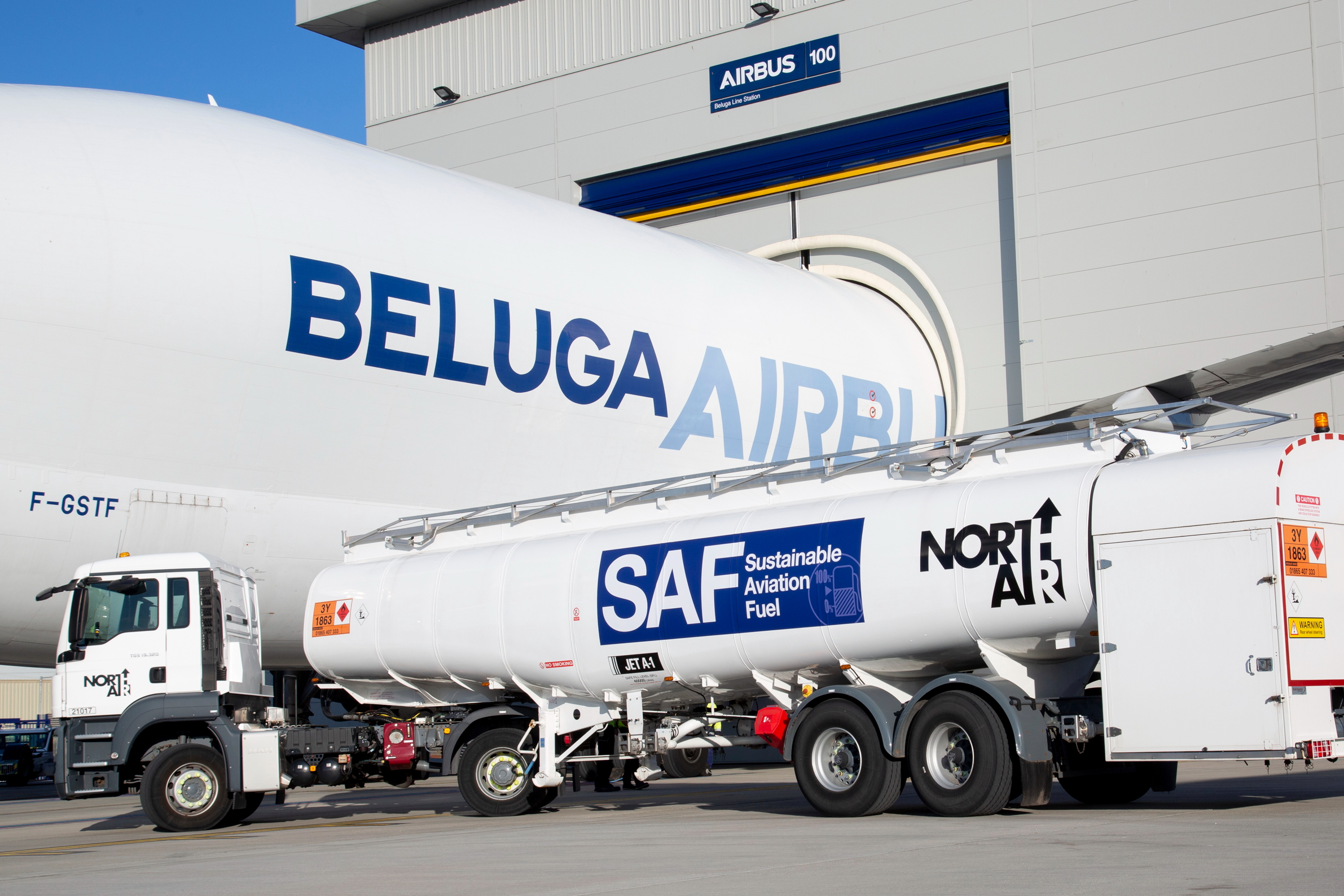|
Airbus has taken the next step in reducing its
industrial carbon footprint with the maiden flight of a Beluga super-transporter using sustainable aviation fuel (SAF) from the
aerospace company�s Broughton plant in the UK.
The north
Wales line station, which uses the Beluga fleet to transport
aircraft wings to Toulouse, Hamburg and Bremen, becomes the second
Airbus European site to use SAF, after Hamburg introduced the fuel
to its cargo activities at the end of 2019.

�This first
flight by a Beluga transporter from Broughton, partially fuelled
with SAF, marks an important milestone in Airbus� ambition to decarbonise its industrial operations,� said Tony Derrien,
Sustainable Aviation Fuels Project Manager, Airbus. �Combined with our ongoing research into the potential for 100%
SAF in commercial flights, reducing fossil-fuels in our own
operations underlines Airbus� commitment to lessening the impact
of our manufacturing footprint and contributing towards a more
sustainable future for the aviation sector more generally.�
Sustainable aviation fuels are currently certified by
regulators for up to 50% use in commercial flights. The Beluga
fleet operating from Broughton will initially be loaded with a 35%
blend of non-fossil derived fuel, set to reduce CO2 emissions by
more than 400 tonnes over the next three months.
The SAF
used by the Beluga fleet is made from used sustainable feedstocks,
such as cooking oil, and supplied to Airbus in Broughton and
Hamburg by Air bp.
�The progressive deployment of sustainable
aviation fuels at Airbus� sites is an essential part of our decarbonisation roadmap. We�re proud that Broughton has become the
second Airbus site to introduce SAF in its Beluga-fleet
operations,� said Andy Owen, Beluga Line Station Manager at
Broughton.
See latest
Travel Industry News,
Video
Interviews,
Podcasts
and other
news regarding:
COVID19,
Airbus,
North Wales,
SAF,
Beluga,
Sustainable,
Fuel,
Air bp.
|
Headlines: |
|
|

